The massification project develops horizontal collaborations among shippers to bundle their freight volumes on a same train towards one destination. The massification concept into a logistics organization aims to bundle goods on the same transport mode with a capacity. The massification project yearns for demonstrating the feasibility of a rail shift as the “massified transport mode”.
The methodology has been developed using the Dourges (France) – UK corridor as initial pilot, where glass making, agriculture / vegetables, tyres, water, sportswear, hardware and decoration retailer, and consumer goods retailer participated. However, the massification project methodology doesn’t restrict any type of shippers’ typology.
What is the challenge?
Lack of coordination among logistics services providers operating in the Cluster network of hubs, terminals and infrastructures leads to the following problems:
- Overall lack of multimodal transport knowledge in Small and Medium Enterprises and sometimes in Key Accounts
- A high cost of break loading
- Rail freight is not sufficiently flexible (organization, delivery, controls).
- Rail freight demands a new organization in the whole supply-chain
- Underutilized terminal capacity by shippers, both handling and storage areas.
- Lack of synergies among terminals and hubs in the network to develop common value-added services.
- Limited volumes to implement fully efficient intermodal transport connections from Cluster’s hubs to key external destinations.
- Lack of synchronized operation of transport and logistics services at the Cluster level, limiting responsiveness and increasing delays and waiting times at nodes.
- Higher costs due to missing consolidation of shipments and under-optimized load factors.
Our solution
Massification project focus on to overcome barriers and enable real collaboration to bundle shippers’ transportation needs with other shippers, to:
- Eliminate inefficiencies in road transportation, e.g., increasing load factor, reducing empty km.
- Shift freight from road to rail and other modes.
- Lower freight transportation environmental and social impact (e.g., CO2 emissions, congestion, safety risks).
The massification project relies on three tools:
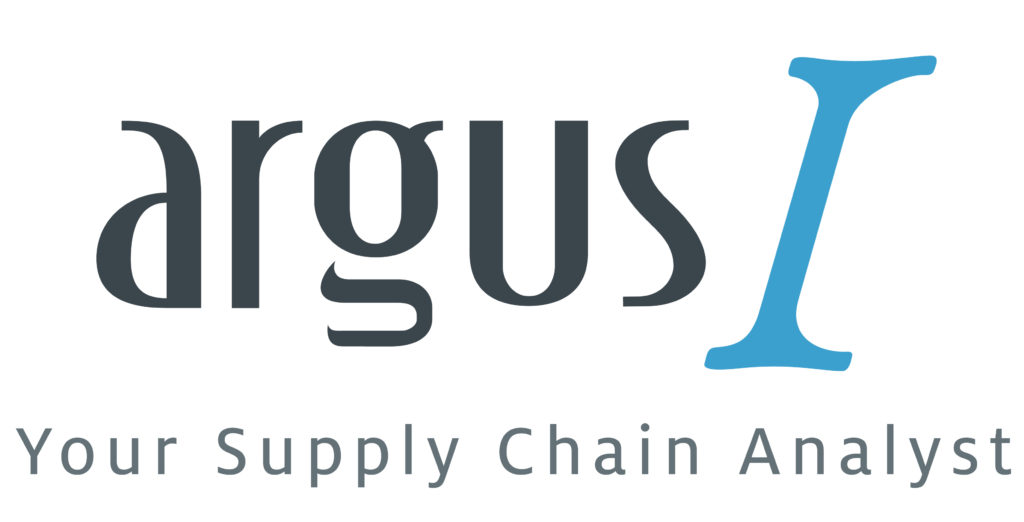
Quick Check Tool by Argusi

X-Intermodal Tool by PTV
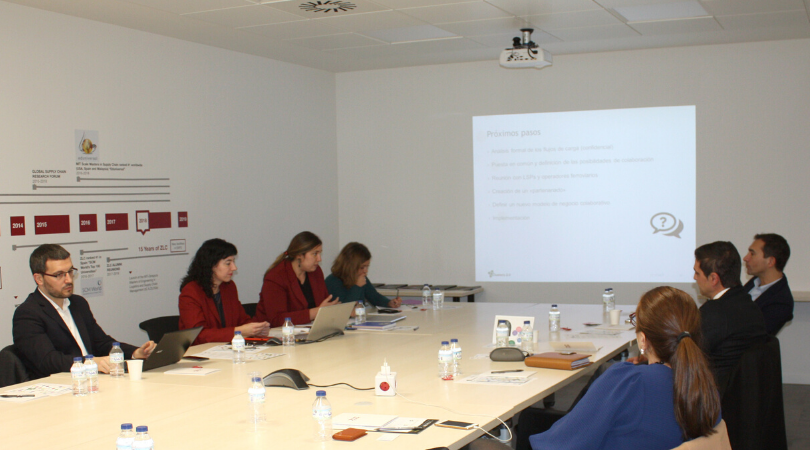
Collaboration workshops by Euralogistic
Quick Check Tool by Argusi
The Quick Check Tool (QCT) is an online tool in which a user can search for transport synergy opportunities. It starts at an aggregate level to enable the user to quickly investigate on which lanes there is volume to collaborate on transport.
To find the opportunities with the QCT, the user starts with giving information on the transportation lane he is interested in. The tool will search for all other transport on this lane.
Insights are then given into the weights transported by different organizations and into potential cost and emission savings through collaboration. When train connections are available on the lane, the tool will show these too.
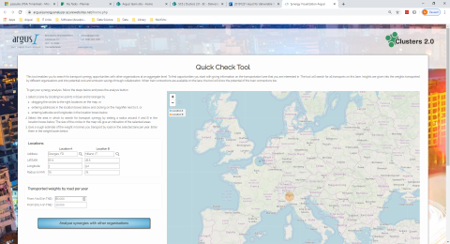
Users give information on the transport lane their are interested in. 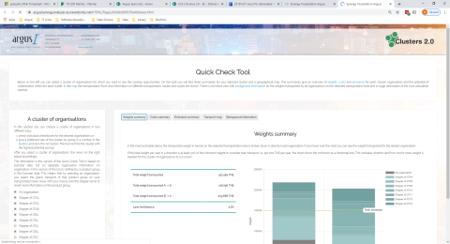
The Quick Check Tool gives insights into potential cooperation. 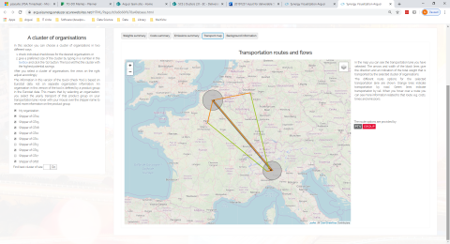
The Quick Check Tool shows available connections.
Why use Quick Check Tool
- Get first insights in transport synergy opportunities on a transport lane.
- Get an answer to the question of whether enough volume is transported on a lane to justify further investigation.
- The user can easily compare different collaboration scenarios, i.e. switch organizations on and off to see what it brings to the collaboration.
- With the tool not only the transport volume is investigated, but also the modalities with which the volume can be transported are put right next to it.
- And last, the tool is quickly to use, only a few inputs are needed to get the insights.
If you want to know more or if you want to try out the Quick Check Tool, please fill the form below and contact us.
Error: Contact form not found.
Collaboration workshops
The massification project started with shippers’ needs that are not common in the logistics schemes. Shippers are usually in touch only with their logistics providers who handle directly all rail freight stakeholders. On the contrary, in the massification project, shippers speak directly with the rail freight operator and the terminal manager. This new scheme upsets tradition which represents a new disruptive model. Moreover, gathering only shippers in the massification project fosters a collaborative approach.
Collaboration workshops have been held in Dourges, Piraeus, Zaragoza and Trelleborg. Organizing different meetings with a variety of shippers enables to build a kind of a broader methodology, able to be duplicated in other TEN-T hubs. The massification approach brings a great opportunity to other hubs since it allows sensitizing shippers to the multimodality transportation as an answer to social, economic and environmental issues. It enhances shippers to assume an active role in their logistics organization rather than delegating to logistics providers. The massification project creates a solution to rationalize flows between hubs, to ship smoothly and to improve connection relying on shipper’s demand.

